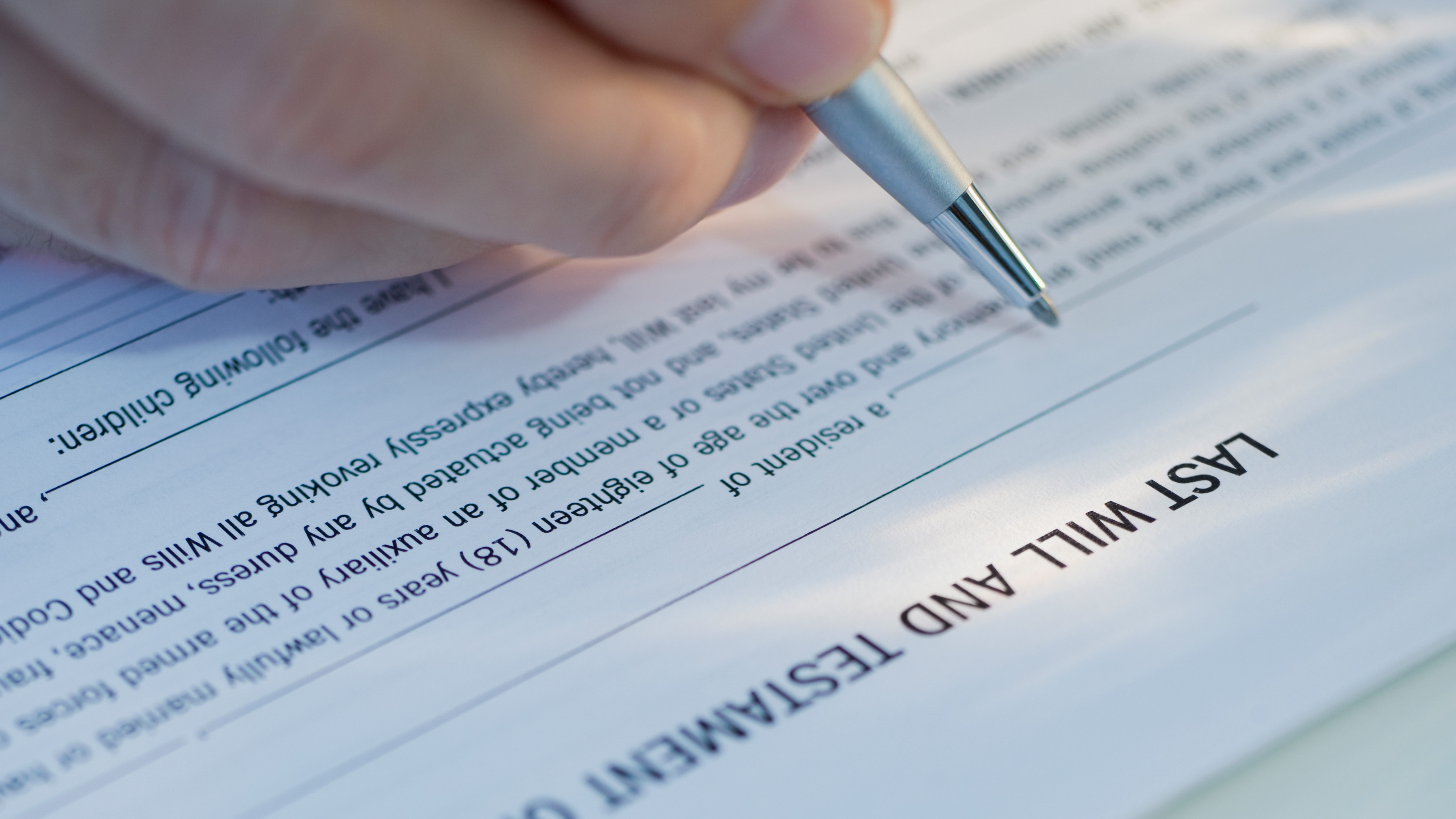Why you should make a will
Creating a will is important if you want to ensure your estate will be passed on to those you love. Here, we explain why you should make a will and what will happen if you don’t.

A will is a legal document that allows you to detail how you would like your property and estate to be distributed when you die. Wills are not just for the rich and wealthy – no matter how much or how little you own, creating a will ensures your assets will be passed on as you intended.
Why should someone make a will?
According to a recent survey, 68% of Americans do not have a will. Yet if you die without making a will – known as dying intestate – state law will govern who gets your property and assets. This can result in loved ones missing out and your estate being passed on to someone you did not intend – such as an estranged relative. Not having a will can also cause family strife at an already difficult and emotional time.
By creating a will, you can help ensure your family and loved ones do not have to waste extra time, money and energy settling your affairs.
Creating a will enables you to:
Be clear about who gets your assets
You can outline who gets what and how much. Not only will this ensure your assets don’t fall into the “wrong” hands, spelling out your wishes can also help to minimize family disputes. You may also want certain assets placed in trust for the benefit of your children.
Detail specific bequests
If you wish for certain family members or friends to receive financial gifts or particular items – for example, an expensive painting or diamond ring – a will can provide for these.
Protect your life partner
If you live with a life partner but have no marriage, civil union, or domestic partnership certificate, your partner won’t stand to inherit unless you have a will. Instead, if you have no children, state law will usually dictate that your closest relatives will be the beneficiaries of your property.
Sign up to receive the latest news, reviews, buying guides and deals direct to your inbox
Decide who should take care of minor children
A will allows you to nominate who should look after any children you have if you die while they are young. Without a will, the court will make that decision on your behalf.
Reduce estate tax liability
The value of what you give to family members or charity will help to reduce the value of your estate and offset estate tax. As of 2021, federal estate tax is due if an individual estate’s value is more than $11.7 million.
Choose your executor
An executor is the person you nominate to deal with your estate when you pass away. As part of this, your executor may have to pay off bills, close financial accounts and notify banks and other financial organizations. You’ll therefore want to ensure your executor is someone you fully trust.
Avoid a lengthy probate process
All estates must usually go through probate, even if there is a will. However, if you have a will, this can help save both time and money and allow your beneficiaries to get access to your assets more quickly.

When should you write a will?
Most states in the United States require you to be at least 18 years old before you can create a will. After that point, it’s ultimately up to you when you choose to write your will, but there are some key life events that should prompt you to consider it.
For example, it is sensible to write a will if you are:
- Buying a house
- Moving in with a partner
- Getting married
- About to have children
Even if you are single and do not have children, a will can still be important if you have acquired substantial assets as it will ensure these are passed on to the right people in the event of your death.
Once you have a will in place, it is important to regularly review it to check it still accurately reflects your wishes. You may wish to amend your will if, for example, you get married or divorced, you have another child or you acquire more property.

How to write a will
The best online will makers are a quick and convenient way of creating your will and can be a more affordable alternative to approaching a legal professional. Such software will also usually allow you to alter your final wishes whenever you see fit, so you can avoid paying for repeat appointments with a law expert.
What’s more, providing your will meets all the requirements of the state where it is executed, creating a will online yourself will be legal and just as valid as a will drafted by a legal professional.
Step-by-step instructions will usually be given to guide you through the process, but you can expect to provide details such as:
- Your name and address
- Your relationship status and name of spouse (if applicable)
- Name and birth dates of any children
- Proposed guardians for your children
- Who should act as executor
- A list of your assets
- Specific bequests
Note that if you have a particularly complex estate, hiring a legal professional is usually a safer bet than using an online will maker as it will ensure everything has been considered and ordered correctly. You should also hire a lawyer if you want to disinherit a spouse.
Although wills do not need to be notarized, in most states it can be worth including a self-proving affidavit to your will to avoid delays when distributing your estate. This is a short note to say the will was fully executed and allows your will to be “proven” to the probate court.
Additional financial protection
Creating a will is just one part of ensuring your loved ones are financially protected when you pass away. It is also worth looking at the best final expense insurance to ensure the cost of your funeral and burial does not become the responsibility of your family, while the best life insurance policy will give peace of mind that your loved ones’ finances will be secure when you’re no longer around.
Rachel is a finance expert and regular contributor to Top Ten Reviews. She has crafted expert financial advice for the likes of The Spectator, Money Supermarket, Money to the Masses, and The Observer. She has written extensively about money-saving tips, and about how you can make the most of your finances in relation to loans, house buying, and other subjects.
